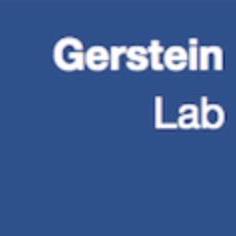Discover and explore top open-source AI tools and projects—updated daily.
gpt-migrate by  joshpxyne
joshpxyne
Code migration tool using LLMs
Top 7.3% on SourcePulse
GPT-Migrate is an open-source tool designed to automate the complex and time-consuming process of migrating codebases between different programming languages and frameworks. It leverages large language models (LLMs) to analyze existing code, identify dependencies, generate new code, and create unit tests, aiming to significantly reduce the manual effort involved in software modernization. The project is targeted at developers and organizations facing significant migration challenges.
How It Works
GPT-Migrate employs a multi-step, LLM-driven approach. It first sets up a Docker environment for the target language. Then, it recursively analyzes the source code to map dependencies and rebuilds the codebase from a specified entry point, iteratively debugging and refining the output. The tool also generates unit tests using Python's unittest framework and can optionally validate these tests against the original application if it's exposed on a specific port. Debugging is an iterative process where the LLM suggests file operations (move, create, edit) based on logs and error messages, seeking user confirmation for shell commands.
Quick Start & Requirements
- Installation: Install Docker. Install Poetry, then run
poetry install. SetOPENROUTER_API_KEYand/orOPENAI_API_KEY. Install requirements:pip install -r requirements.txt. - Execution: Run
python main.py --targetlang <target_language> --sourcedir <source_dir> --sourceentry <entry_file> --targetdir <target_dir>. - Prerequisites: Docker, Python 3.x, Poetry, OpenAI or OpenRouter API key. GPT-4 or GPT-4-32k is recommended.
- Resources: Costs can accumulate quickly due to LLM API usage.
- Docs: https://github.com/joshpxyne/gpt-migrate
Highlighted Details
- Leverages a hierarchical prompt design for structured LLM interactions.
- Supports iterative debugging with LLM-suggested file operations.
- Can optionally validate generated unit tests against the original application.
- Offers customization via numerous command-line options for source/target languages, directories, ports, and guidelines.
Maintenance & Community
The project is actively seeking contributors. Discussions and updates can be found on Twitter. A professional migration service is also offered via https://gpt-migrate.com/.
Licensing & Compatibility
The repository's license is not explicitly stated in the provided README. Users should verify licensing for commercial or closed-source integration.
Limitations & Caveats
GPT-Migrate is in alpha and not production-ready. It succeeds on simpler language pairs (e.g., Python to JavaScript) about 50% of the time and struggles with more complex languages like C++ or Rust without human intervention. The roadmap includes adding LLM input size limiting and more comprehensive benchmarks.
1 year ago
Inactive

 retrage
retrage backnotprop
backnotprop mohsen1
mohsen1 namin
namin modal-labs
modal-labs j178
j178 angular
angular woniu9524
woniu9524 gersteinlab
gersteinlab sourcery-ai
sourcery-ai OpenCodeInterpreter
OpenCodeInterpreter Codium-ai
Codium-ai